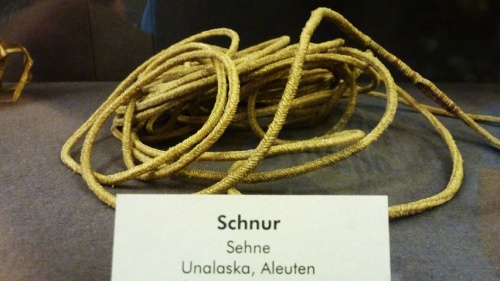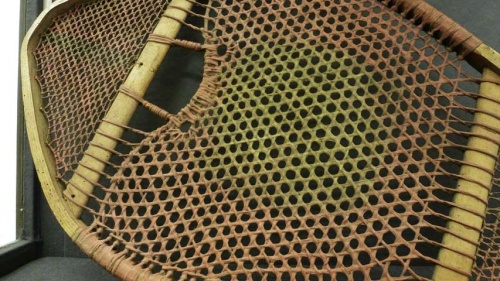Difference between revisions of "Tendons"
From www.leather-dictionary.com - The Leather Dictionary
| Line 4: | Line 4: | ||
| − | The tendons of animals | + | ==What were animal tendons used for?== |
| + | Historically and even today, animal tendons have been used for various purposes. Here are some examples: | ||
| + | |||
| + | * Tendons as cords: Due to their strength and flexibility, they were well-suited for making cords, straps, and ropes. These tendons were used, for instance, to secure spearheads, as lacing for snowshoes, or in the making of bowstrings for bows and arrows. The tendons of animals were dried and then split into fine fibers or strands using a sharp tool to create ropes. The spun tendon fibers were then twisted to produce a stronger and more durable cord. | ||
| + | * Musical instruments: Animal tendons were used in some traditional musical instruments. For example, in string instruments such as the violin or cello, animal tendons were previously used as strings. The tendons provided a unique sound quality and were known for their warm and resonant tone. | ||
| + | * Artistic craftsmanship: Animal tendons were used, for instance, to tension drums or make bowstrings for traditional bows. They were also utilized in some historical binding techniques or weaving patterns as a material. | ||
| + | * Medical applications: Animal tendons were used as suture materials in surgical procedures to close wounds and repair tissue. | ||
| + | |||
| + | In many modern applications, animal tendons have been replaced by synthetic or metallic alternatives that offer similar properties. | ||
Latest revision as of 11:55, 26 June 2023
What were animal tendons used for?
Historically and even today, animal tendons have been used for various purposes. Here are some examples:
- Tendons as cords: Due to their strength and flexibility, they were well-suited for making cords, straps, and ropes. These tendons were used, for instance, to secure spearheads, as lacing for snowshoes, or in the making of bowstrings for bows and arrows. The tendons of animals were dried and then split into fine fibers or strands using a sharp tool to create ropes. The spun tendon fibers were then twisted to produce a stronger and more durable cord.
- Musical instruments: Animal tendons were used in some traditional musical instruments. For example, in string instruments such as the violin or cello, animal tendons were previously used as strings. The tendons provided a unique sound quality and were known for their warm and resonant tone.
- Artistic craftsmanship: Animal tendons were used, for instance, to tension drums or make bowstrings for traditional bows. They were also utilized in some historical binding techniques or weaving patterns as a material.
- Medical applications: Animal tendons were used as suture materials in surgical procedures to close wounds and repair tissue.
In many modern applications, animal tendons have been replaced by synthetic or metallic alternatives that offer similar properties.
A rope made of tendons of animals. - Stringing of a snowshoe made of animal tendons.
Additional information










 a kotori web solution
a kotori web solution